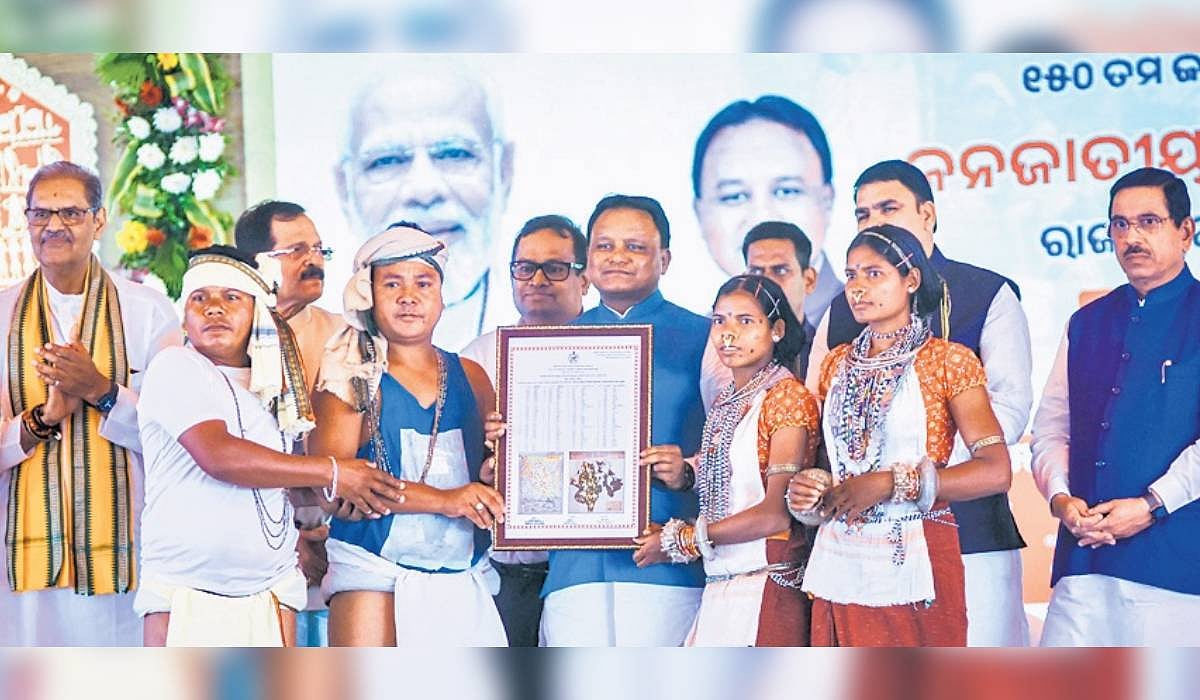 |
|
The Odisha government, under Chief Minister Mohan Charan Majhi, has announced its intention to implement the Panchayats Extension to Scheduled Areas (PESA) Act. This decision, however, will be contingent upon gathering feedback from all relevant stakeholders. This commitment underscores the state's dedication to the welfare and development of its tribal population. The announcement was made during a function commemorating Janjatiya Gaurav Diwas, coinciding with the 150th birth anniversary of Bhagwan Birsa Munda, a prominent freedom fighter. The event, attended by the Chief Minister via video conference alongside Prime Minister Narendra Modi's participation in a national function in Bihar, highlighted the significance of the occasion and the government's commitment to tribal empowerment.
A key component of the implementation strategy involves convening gram sabhas (village councils) in all villages situated within tribal-dominated districts of Odisha. These meetings will serve as crucial platforms for collecting feedback and incorporating the concerns and perspectives of the local communities. This participatory approach ensures that the implementation of the PESA Act is locally relevant and effectively addresses the specific needs and aspirations of the tribal population. This commitment to grassroots-level engagement is vital for the successful implementation of the Act, ensuring its alignment with the lived experiences and priorities of those it aims to serve. The government's approach contrasts sharply with top-down implementations that often fail to consider the local context.
Beyond the PESA Act implementation, the event also witnessed the laying of foundation stones for various development projects earmarked for Scheduled Tribes, totaling Rs 1,535 crore. This significant investment underscores the Odisha government's commitment to improving the living standards and socio-economic conditions of tribal communities. A notable component of this initiative involves the upgradation of 16 ashram schools to high schools, at a cost of Rs 15 crore per school, for a total investment of Rs 240 crore. This investment in education signifies a long-term strategy focused on human capital development within tribal communities. The government clearly aims to bridge the education gap and provide tribal students with enhanced educational opportunities, ultimately improving their life prospects.
The Prime Minister's participation in a concurrent national function in Bihar further emphasized the national significance of tribal development. The Dharti Aaba Janjatiya Gram Utkarsh Yojana (DAJGUY), launched by the Prime Minister, aims to improve infrastructure in health, education, and livelihood sectors in tribal regions. In Odisha alone, 7,667 villages across 27 districts have been included under this scheme, showcasing the scale of the national effort to uplift tribal communities. The convergence of state and national initiatives highlights a collaborative approach to addressing the challenges faced by tribal populations and suggests a concerted effort to improve their living conditions and societal participation.
The Odisha government's commitment to implementing the PESA Act, coupled with significant investments in development projects specifically targeted at Scheduled Tribes, demonstrates a proactive approach to tribal welfare. The emphasis on stakeholder consultation and participatory governance ensures that the implementation of the PESA Act is locally responsive and truly effective in empowering tribal communities. The long-term implications of this initiative extend beyond immediate infrastructural improvements, aiming to foster sustainable development and enhance the social and economic well-being of Odisha's tribal population. The coordination with national initiatives like DAJGUY further reinforces the commitment to inclusive growth and equitable development across all segments of Indian society.
Source: PESA Act to be implemented in Odisha after taking opinion of stakeholders: CM Majhi
